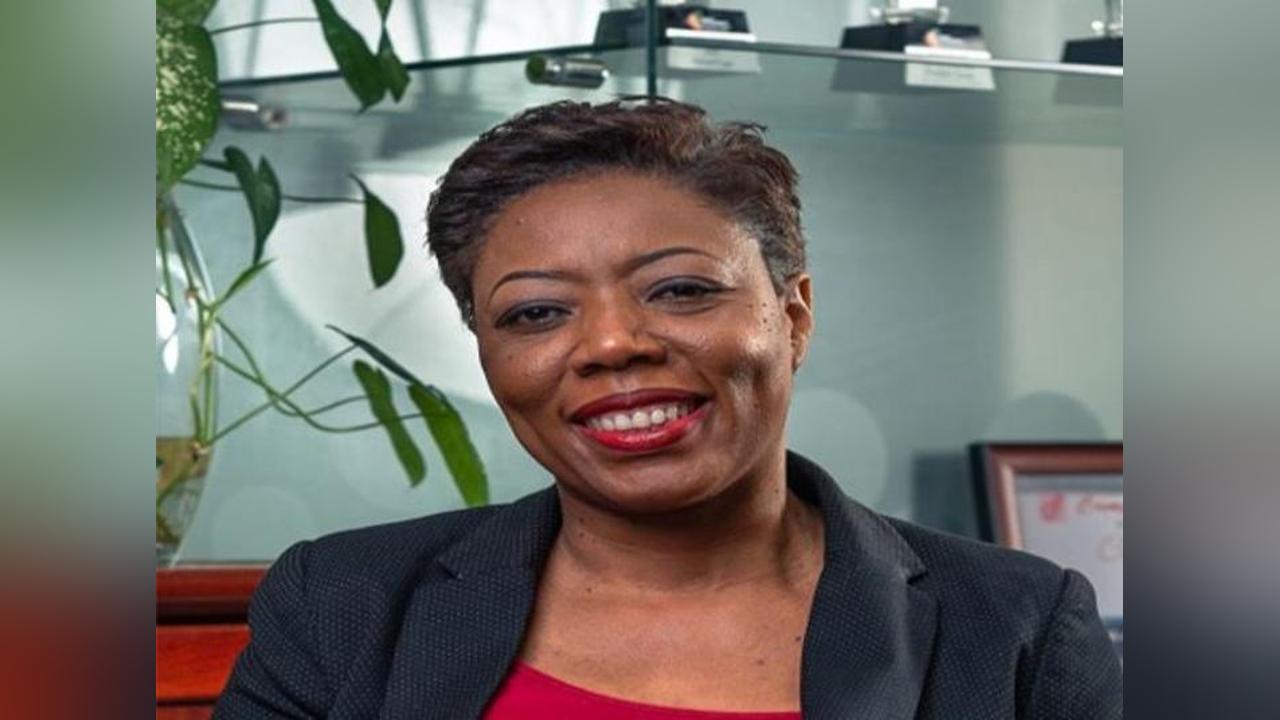Africa-Press – Ghana. Every year on May 17, the world marks World Telecommunication and Information Society Day (WTISD) to help raise awareness about the transformative power of communication technology in national economic and social development.
This year’s theme “Gender Equality in Digital Transformation,” called for a renewed commitment to leveling the playing field ensuring that women have equal access, representation, and voice in shaping the digital future.
In Ghana, the digital revolution is not just about access to technology, it’s about inclusion, leadership, and vision and one of the inspiring figures at the forefront of breaking the gender gap in this evolution is Mrs. Ethel Anamoo, Chief Business Officer at AT Ghana (formerly AirtelTigo), a telecommunication brand.
A Defining Career in Technology
Born and raised at the 37 Military Barracks, her childhood dreams reflected the ambition and discipline of her environment “I wanted to be a senior military nurse like my parents at 37 Military Hospital. A t another point, I wanted to be a cabin crew member and travel the world” she shares.
While her early aspirations pointed to service and adventure, her academic path led her to the University of Cape Coast, where she earned a Bachelor of Commerce degree and a Diploma in Education.
After spending three years in an engineering consultancy firm, fate and curiosity led her to the tech world. In the year 2000, she joined Ghana Telecom as a Customer Service Assistant Manager at the dawn of the GSM revolution.
That entry into telecom ignited a lifelong passion. She was fascinated by GSM technology and inspired to learn more so could better serve customers. This thirst for knowledge and excellence quickly propelled her up the corporate ladder.
By 2008, she was the Chief Manager of Corporate Sales when Vodafone acquired Ghana Telecom. Her dedication was soon rewarded with an ITU-sponsored scholarship to study Communications Management at Coventry University in the UK, earning a Postgraduate Certificate and Diploma while being the only non-technical female in her cohort.
That moment became a major turning point. “It grounded me in both technology and management, the industry was evolving, and I wanted to evolve with it.”
Resilience, Results, and Representation
Despite a male-dominated landscape, Ethel never allowed gender stereotypes to define her limits, she recalled that there were fewer female role models in Senior technical roles when she started. She had her doubts, but leaned on mentorship, continuous learning, and performance.
At Vodafone, under the leadership of her expatriate line manager and sponsor, she was selected for the “Women in Excellence” program and undertook training in Telecom Strategy, Mini MBA programs, and Project Management and also benefited from guidance from seasoned mentors like Dr. Mrs. Stella Agyenin Boateng, then Human Resource (HR) Director for the company.
When she joined AT Ghana in 2018 as Chief Business Officer, she took the reins of AT Business, leading Enterprise Sales, Product Development, Commercial Marketing, and Analytics. Currently she is responsible for providing cutting-edge telecom solutions to government agencies, multinationals, Small and Medium Enterprises (SMEs) and more.
Gender Equality in the Age of Digital Transformation
According to Mrs. Anamoo, the role of women in digital transformation was becoming increasingly vital.
“Diversity and inclusion drive innovation, companies with diverse teams are more likely to deliver better business outcomes,” she said
While acknowledging, the persistent challenges such as unconscious bias, limited representation and the digital divide, she believes companies must implement blind hiring practices, promote female role models, and provide access to education and training to shift the narrative.
For instance, at AT Ghana, strides are being made through, Inclusive hiring practices with diverse interview panels, Flexible work arrangements supporting work-life balance, STEM mentorship programs for girls and respectful workplace policies
But more can still be done in the area of formal mentorship programs, targeted leadership development, and increased training for women to thrive and rise in digital roles.
Mrs. Anamoo advised aspiring women in ICT to believe in themselves, be resilient and passionate adding “ask for help, celebrate your small wins and never stop learning.” Looking back,
She hopes to inspire confidence in young women, advocate for inclusivity in technology and her story embodies both the challenges and the breakthrough which defined, the journey of women in ICT and offers a blueprint for the next generation.
For More News And Analysis About Ghana Follow Africa-Press







